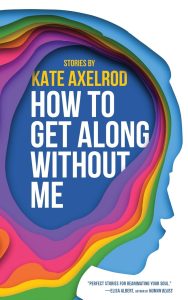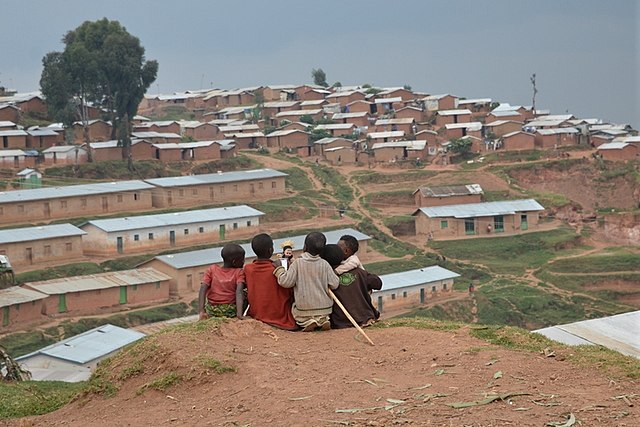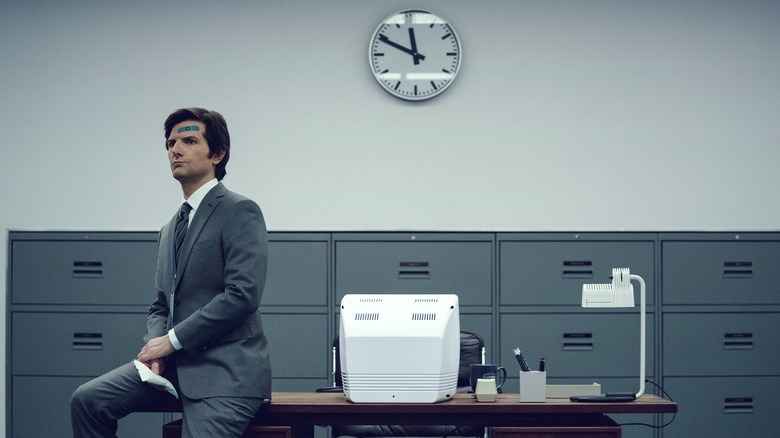Lit Mags
Newly Single in a World of “We”
“Women Who Rule the Screen” from HOW TO GET ALONG WITHOUT ME by Kate Axelrod, recommended by Edan Lepucki

Introduction by Edan Lepucki
The wry, efficient stories in Kate Axelrod’s debut story collection How to Get Along Without Me are irresistible because they capture, in a single, devastating sentence, or a seemingly tossed-off joke, the muted despair of youthful uncertainty. The final story, “Women Who Rule The Screen,” is the last in the collection and my favorite of the bunch.
It’s a deceptively simple story about a young woman in her twenties who, still heartbroken after the end of a romantic relationship, goes to visit her cousin, her wife, and their new baby. In the opening paragraph, our narrator admits: “I was no longer in a place where I could accurately say I was going through a breakup, and yet, I still really felt like I was going through a breakup.” She’s hungover and lonely, her friends in her social group are starting to pair up—they’ve stopped “shit-talking their partners”—and she longs for the comfort of family, the sweetness of an infant, and the kind of domestic contentment that, because her cousin is older, feels “aspirational.”
Axelrod’s work is embedded in the present moment and she conjures it with a sharp eye. The cousin’s house, we are told, is “sweet and charming in a generic AirBnB and Pinterest sort of way,” and we learn that the narrator keeps tabs on her ex . . . by reading his Venmo purchases. To have the present world nailed on the page like this is such a delight. Again and again, I experienced recognition as I read.
Nothing life-changing happens in the story, and that’s why it stirs me: it captures life as it’s lived when you’re not over your past and you aren’t sure what’s next. There is watery iced coffee, a jar of weed, conversations about childhood heartbreak, and a vision of marital stability that seems far off, yet not totally implausible, either. The story lives in the shimmer between impossible and definitely. When our narrator witnesses her cousin’s baby getting bathed, her envy of him pierces unexpectedly. “Louie just wanted love reflected back at him, and he got it.” This simple human need isn’t yet realized for our narrator, but it might be. Someday. Maybe.
It’s a funny and tender story. See for yourself.
– Edan Lepucki
Author of Time’s Mouth
Newly Single in a World of “We”
Kate Axelrod
Share article
Women Who Rule the Screen by Kate Axelrod
The woman sitting next to me on the train had pink hair and wore a bracelet made with small alphabet beads that spelled out *DEAD*DAD*CLUB*. She snored for most of the trip, but it was more meditative than disruptive. I was headed upstate to see my cousin Carly who’d had a baby a couple of months earlier. Her wife, Zoe, was a visiting professor at a liberal arts college along the Hudson, and they were there for the semester. I really wanted to meet the baby, but I also felt desperate to briefly sidestep the loneliness of my day-to-day life. I was no longer in a place where I could accurately say I was going through a breakup, and yet, I still really felt like I was going through a breakup.
Normally I loved taking the train; I didn’t have to talk to anyone and nothing was expected of me, I could just read while being hurtled forward in relative silence. But I was hungover, and I winced when the sun shone, intermittently, through the dusty windows. The night before, I’d gone out for my friend Jackie’s husband’s birthday. Jackie’s husband was kind of a tool but also really nice; he was an I-banker, an expression I hadn’t heard of prior to meeting him, but as Jackie liked to point out, he was also a budding philanthropist and mentored a boy whose mother was in prison.
We were at a bar in the West Village and I was waiting for my Negroni when an EDM cover of “Smells Like Teen Spirit” came on over the speakers. I bonded with the guy next to me who shook his head sadly and said something about Kurt Cobain rolling over in his grave. We went home together because all of my friends had gone home with their partners. He was a movie producer with thinning hair and a scar where there’d once been an eyebrow piercing. I remembered bits and pieces of the night; namely that he seemed like a real grown up because he had remote controlled window shades and a bar cart that held different kinds of whiskey. Rich, my friend Becky said. You just mean he’s rich.
We made out on his leather couch and then he fingered me and I realized, with a flash of horror, that I’d forgotten to take out my Ella, the silicone cup that held my period blood.
“Dude, what is that?”
“Fuck, I’m sorry.”
“Do you have a plastic pussy?”
“Something like that,” I said and I hopped off the couch and adjusted my pants. I wasn’t interested in explaining and then having him either a) smugly voice his support of my period and its related paraphernalia or b) express mild distaste for the situation and think of some reason to order me a car home. Recalling this on the train made me laugh out loud and I texted my group thread to share about my plastic pussy. Jackie responded immediately. Omg. Guy’s lucky it wasn’t dentata down there.
Carly and Zoe were almost a decade older—not my peers—and so their contentment was not something to disdain, it was aspirational. I’d seen Carly through her own mess of sorts: a stint of religious observance, and a period of disordered eating which may not have ever crossed over to an Eating Disorder proper, but still. And yet she’d arrived on the other side of forty with a graceful equilibrium. It was nice to be around.
I’d idolized Carly forever and at family functions I paid close attention to her ladybug studded earrings, a tortoiseshell hair clip, the Doc Martens she wore for years. She talked often of Ani DiFranco. Once I overheard her say, I’d rather date someone who cared about religion, any religion, even if it wasn’t my own. This struck me as wise and mature, and I was disappointed when I realized years later that I didn’t actually agree with it.
I was still hungover and nursing a watery iced coffee when we pulled into the station. I tried to gather my belongings quietly so I wouldn’t disturb my seatmate. My head throbbed as I bent to get my backpack from beneath the seat. Her eyes fluttered open and shut and she let out a soft belch.
Carly was waiting in the lot beside the station. Baby Louie, named after our Grandpa Lou, was in a car seat with a fist in his mouth. He had a huge, goofy grin on his face. Carly’s breasts were enormous.
“You have a baby!” I cried.
“Sure do!” She was beaming, not harried with purple circles under her eyes like I’d expected. We hugged and she pulled back quickly.
It was late April and the first warm day in a while. I hadn’t left the city in so long and I’d forgotten how clear and big the sky could be.
“I smell terrible,” she said. “It’s a thing, apparently. So Louie can smell me. But it’s still gross and I did shower yesterday, I promise.” I squeezed her hand.
Carly and I had been at the supermarket when we learned over the radio that Eric Clapton’s son had died. I was seven and I loved sucking on uncooked pasta straight from the box.
“Jesus fucking Christ,” she’d said. It was the first time I’d heard her curse and I looked at her expectantly, waiting for her to apologize or blush, but she did neither. She’d grabbed two boxes of rigatoni and headed toward the register. People were murmuring on the check-out line. A woman held packages of frozen French fries and cried.
When we got back to my parents’ apartment, a postwar high-rise near Lincoln Center, Carly had turned on the television and I’d poured a handful of pasta into my palm. Clapton’s son was four-and-a-half and had fallen out the window of their fifty-third-floor apartment. We were on the tenth floor and our windows barely opened but I felt a flutter of panic and imagined myself tumbling out, soaring briefly before thudding onto the navy awning outside the lobby. Carly eyed me sucking on the pasta.
“You’ll have to have some protein soon, okay? At least have a cheese stick or something?”
That particular weekend, Carly was babysitting because my parents were in Baltimore, moving my great uncle into an assisted living facility. He had Parkinson’s and had lost most of his speech by that point. Sometimes he wrote me notes in big, loopy script. Whenever I saw him he’d take my hand and kiss it, his lips damp with drool. This was just a year before my parents split up, and I often think of it as the last intimate expression of their partnership.
That night, Carly’s boyfriend Andy came over with Burger King: two Whoppers, a six-piece chicken tenders for me, and a large fries that we shared. We all agreed that the fries were inferior to McDonald’s but ate them anyway. Andy wore baggy corduroy pants and a hoodie over his curly hair. We were listening to the classic rock station and Clapton’s hits were on repeat: “Layla,” “Bell Bottom Blues,” some Cream songs.
“It’s just so sad,” Carly said again.
Andy was unmoved.
“I guess. That dude’s super racist.”
“I didn’t know that.”
“Well MTV probably didn’t advertise it. He said some really awful shit a while back. Blamed it on being drunk, but you know that wasn’t it.”
“Okay, but it’s still really sad.”
“I suppose. But this is your problem, you really play into this idea of hero worship with celebrities. It replaces interpersonal relation with fixation on an illusion. And you don’t actually think critically about why you’re idolizing them.”
And you don’t actually think critically about why you’re idolizing them.
“I don’t idolize him,” Carly said softly. A bouquet of plastic carnations collected dust on the dining room table and she brushed a finger along the petals.
“It’s like the same way you romanticize ‘Princess Di.’ That she’s so down to earth and empathetic and that the Royal Family’s torching her—those’re two sides of the same smug, entitled, neo-colonial coin.”
Carly stood up and took a can of seltzer from the fridge. “Can we talk about this later?” she asked.
“Sure,” Andy said. “So, Carly says your parents are in Baltimore this weekend?”
“Yup. My dad’s from there,” I told him.
“I was in Baltimore once when I was a kid,” Andy said. “My parents took me to some indoor play space with friends of theirs and I pissed my pants in the ball pit.”
I laughed and pieces of chewed up French fry came out of my mouth.
After dinner I sat on the sofa and braided and unbraided small sections of my hair, which was straight and brown but would become curly after puberty. My parents called to check in; my mom told me to brush my teeth before bed and reminded me to wash fruit before I ate it. I walked around the apartment with the cordless phone, surreptitiously looking at Carly and Andy. Things were tense but at one point I saw him put his hand in her back pocket.
On the last night Carly babysat, I was in my room when I heard her crying across the hall.
“Can you please stop?” she asked. “Why are you acting like this?”
I was going through a phase of reading young adult Holocaust fiction—stories about pre-adolescent girls forced from their homes, some to the Warsaw Ghetto and others into hiding.
“Seriously, I don’t understand,” I heard Carly say between sobs. “If you actually think that about me then you don’t know me at all.”
After she hung up, she came into my room and sat cross-legged on the carpet.
“He’s allergic to me,” she said, wiping her eyes with the back of her wrist. She began to cry again, her shoulders shaking uncontrollably. I felt ill-equipped to handle such emotion but moved that I was present for it. I held one of her hands and rubbed my thumb along her palm.
The phrase hung around idly in my thoughts for a long time. For a while I imagined that Andy broke into a rash when they touched, but as I got older it became obvious it was a metaphor, though I couldn’t say for what.
Later that night, we got into my parents’ king-sized bed and I braided Carly’s hair while she read aloud from my favorite of the Holocaust books, about best friends in Denmark. One of the girls was Jewish and they pretended to be sisters in order to stay alive.
Carly and Zoe’s house upstate was sweet and charming in a generic Airbnb and Pinterest sort of way—exposed shelving in the kitchen, lots of candles and mason jars, rugs with geometric prints. For dinner we got roasted chicken from the supermarket and Zoe sautéed spring beans and asparagus while Carly nursed Louie.
Louie snorted while he ate. Carly laughed and readjusted her nipple.
“You’re a little piglet,” she told him. She contorted her breast again, squeezed it at the base, and Louie latched like he was eating a hamburger.
“Let me pour you some wine,” I said. I pulled out a bottle of rosé from my backpack, chosen from the $12-and-under table at the liquor store on Atlantic Ave. Zoe handed me a corkscrew.
“Can you please, please tell us something interesting?” she said. “We’re painfully bored of talking and thinking about all this baby stuff. Sleep sacks and swaddles and nipple shields and a hundred different pumps.”
“Literally just two pumps,” Carly said. “But yeah, it’s not particularly compelling. Please tell us things.”
I poured us each a glass of wine. It was warm so I added a couple of ice cubes into the mason jars. I was so bored of myself I didn’t know how to answer the question. All I thought about was the same stupid shit over and over again. My ex Jamie, other people I’d slept with or tried to sleep with or refused to sleep with. I thought of the time I went to see a therapist at student health my first year of college. I was unhappy and told her I wanted to transfer to Brown like everyone else I knew. She smiled smugly and said, “You know, you’ll still be stuck with yourself wherever you are.”
“I wish I had anything to share,” I said now. “I did get a new job fairly recently, but Carly already knows.” I told them about the historical society I was freelancing for, how I was working on an exhibit about tuberculosis in the late 19th century. The city had been ablaze with infection, spreading rapidly in part because of the architecture of the tenements. I’d been out of work for a while, and it felt good to be back, as if someone had taken out my batteries and flipped them around, like I used to do with the remote when I was a kid.
After dinner, I watched them give Louie a bath in a little turquoise tub. He squealed with delight each time they poured a cup of warm water over his belly or the top of his head. I made exaggerated faces at him and he smiled gleefully. I couldn’t help but feel envious of him—how simple his needs were and that they were unequivocally met. Louie just wanted love reflected back at him, and he got it.
Carly and I sat on some wicker furniture on the screened-in porch while Zoe finished up the bedtime routine. I asked her how her brain felt. I told her I’d been expecting her to be anxious and overwhelmed but she seemed remarkably calm.
“Thanks,” she said. “Yeah, I’m sure once I have to go back to work I’ll have a meltdown, but I feel pretty even-keeled at the moment. Though I’m fucking exhausted all the time. It’s like being on a red-eye from LA to New York, every single night.”
Zoe came out holding a jar of weed in one hand and the baby monitor in another. Even though Carly wasn’t smoking, she generously offered to roll us a joint.
“So, I hate to ask this question,” Carly said, breaking the weed apart with her fingernails, “but are you dating? Still talking to Jamie? What’s going on?”
I was both relieved and embarrassed that Carly had asked. Jamie and I hadn’t spoken in many months. I blocked him on all social media but later I learned he was public on Venmo, and this was currently my only means of gathering information. Once he had given six dollars to someone named Jessica very early in the morning—a coffee cup emoji—clearly the result of a one-night stand. But more recently there were consistent payments between him and a woman named Lila: once the spaghetti emoji and then a taxi. It made me slightly queasy to see, but then I figured the relationship couldn’t be that serious if they were still reimbursing each other for things.
There were consistent payments between him and a woman named Lila: once the spaghetti emoji and then a taxi.
“Nothing with Jamie in a while,” I said. “I’ve been dating, I guess. Or like, seeing people here and there. I don’t even really know how to talk about it. It all feels rather pathetic.”
“You were together a long time! You can’t expect to just shrug it all off quickly,” she said.
I told them about some of the internet dates I’d gone on recently. Like the guy who was so nice but kept referring to Ray’s Pizza on 4th Ave as a pizzeria and it drove me nuts. Another guy I was in bed with—extremely hot and scruffy in a ’90s Ethan Hawke sort of way—who seemed promising until I discovered he had a Dave Matthews quote tattooed on his chest.
“Alix!” Carly exclaimed. “I had no idea you were such a judgmental little bitch.”
“Have you met me?”
Zoe and I passed the joint back and forth. It was short and starting to get soggy.
“You know how periodically the Style section or New York mag will write an article about best friends raising a family together? ‘Challenging the paradigm’ or whatever? What if I just want that?” I said. “Why do I have to do all this stuff?”
“You don’t have to,” Carly said. “Come live with us.”
The sun had been sinking slowly but suddenly the sky was dark, much darker than I was used to. Carly flicked on a porch light and Zoe played around with the baby monitor. The image was gray and pixelated and Louie was stirring. When he opened his eyes they lit up like a feral animal caught in the wild by a nature show.
“This is so random,” I said. “But Carly, do you remember that weekend you stayed with me when my parents were in Baltimore with my dad’s family?”
“Of course. And Eric Clapton’s son died.”
“Yes, exactly. And you and your boyfriend were fighting a lot. You were super upset, crying a ton and when I asked you what was wrong you said he was allergic to you.”
“Huh.” She slapped a mosquito that hovered above her thigh.
“Do you remember what that was about? For some reason it has lingered in my brain forever and I always wondered what it meant.”
“No, I have no recollection of that at all. I don’t even really remember him being around that weekend.”
“Wow,” I said. “That’s wild. You were like, completely heartbroken.”
That she could have been so devastated and no longer remember, this was not something I could understand. I wished so much that I was capable of forgetting, but it seemed my destiny to hold on to these sorts of things forever. Sometimes I wondered how my parents were able to rebuild after the divorce, how the undoing of our family wasn’t the focal point of all our lives. For years they’d been regarding each other coolly, not openly hostile but cordial; there were periodic birthday or graduation dinners, and my father attended shiva after my grandfather died. He’d brought a platter of cookies and sat quietly in the living room of the Upper West Side apartment they’d once shared.
Intellectually, I understood my current despair probably had less to do with Jamie than it did my place in life, or rather the feeling of being behind, but it didn’t feel that way. It felt shameful to be so consumed by a breakup and it didn’t align with my understanding of myself: I’d gone to an all-women’s college! My favorite category to watch on Netflix was Women Who Rule the Screen! I’d always prioritized my friends and family, was not one of those people who lost themselves in a relationship, who, as Carrie Bradshaw once said, had “committed the cardinal sin” of disappearing once partnered.
“Well, what’s heartbreaking to me now,” Carly said, “is that one day he’ll just be that guy, the one you dated when Grandma died or the one who went to Thailand, whatever. You won’t even remember! You don’t believe me but it’s true.”
One by one, my friends had stopped shit-talking their partners. There was no longer talk of Jake’s banana-shaped dick or of Anthony’s boring finance job. The 11 a.m. texts on Sundays to meet up for bagels and a debrief of their evenings were replaced with come hang out with us! Tim will make you brunch. Allegiances were shifting. Even Becky, who historically would leave people’s houses after fucking them and crawl into bed with me to watch Netflix, was often feeling cozy at home with her boyfriend. I felt desperate to be with Jamie, I did, but I still couldn’t shake the idea that men were not my allies.
Zoe drummed her fingers absently against Carly’s knee. My head suddenly felt heavy and my mouth was dry.
“I think I’m really high,” I said and went inside. Carly came in a few minutes later. She was wearing a nightgown and looked very Victorian. She handed me fresh pillowcases and a hand towel and we unfolded the couch together.
“I hope Louie doesn’t wake you up,” Carly said. “He stirs a lot and makes noises, but he’s not upset so we try to ignore him. There are some earplugs in the bathroom if it gets bad.”
“I’m not worried.” I gave her a kiss and thanked her for taking care of me even though she had an actual baby to worry about.
I was used to hearing my neighbors walk from one room to another or the swell of an engine as a car raced south on Washington Avenue. The silence was unnerving and I was up for a long time. We’d left the bottle of rosé out on the table and eventually I finished what was left of it. Carly was right, Louie did babble a lot. He didn’t seem upset, more like he was in conversation with himself. Both delighted and exhausted by his own sounds, a series of vowels strung together.
“Ah ooh,” he said, like a little wolf pup. “Ah ooooh.”
I recalled holding Louie earlier in the day, resting my chin on his small fuzzy head. The warm weight of him in my arms. I listened to the whir of the noise machine outside of the nursery and fell asleep.
Before I left, Carly packed me a peanut butter sandwich and a bag of baby carrots for the train. Louie was propped against a cushion and had two stuffed animals in his lap: a soft yellow duck and a blue whale with a sweet smile and a gleaming black button for an eye.
“Did you know,” Carly asked, “that whales are the only mammals aside from humans that go through menopause?”
“I definitely did not know that.”
“It’s called the grandmother effect.” She described the way that older maternal whales cared for their communities, how it had become so vital to their survival as a species, that it became part of the DNA. There was something solemn and beautiful about what she said, yet I felt desperate to get home, back to my life, even if it meant back to Becky and her dumb boyfriend, back to swiping and fucking guys with DMB tattoos, but before that, feeling the flicker of promise as I drank and flirted, conversed in a way that I knew was leading toward sex. I wanted to feel that moment just before it all shifted, when the night was still taut with possibility.
I gave Louie a kiss and told him he was a lucky boy.









